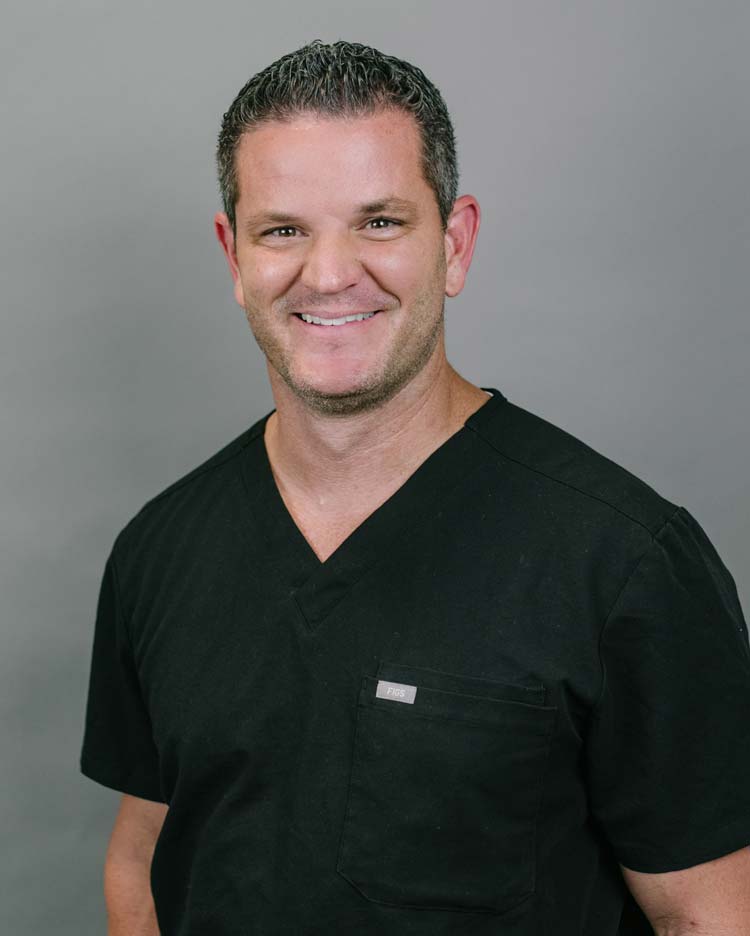
TMJ (temporomandibular joint) disorders are related to your jaw joint, which connects your jaw to your skull. If you have had symptoms like pain, locking, or a “clicking” sound, you’ll be glad to know that these problems are more easily diagnosed and treated than they were in the past. These symptoms occur when the joints of the jaw and the chewing muscles do not work together correctly. Since some types of TMJ problems can lead to more serious conditions, early detection and treatment are important. The doctors at Martin Dental will review your case and recommend a range of possible medical treatments, including dental splints, injections, physical therapy, prescription medications, and in severe cases, surgery. Don’t Live with the symptoms. Let’s Find a Solution!

DR. BRETT MARTIN
DMD - CHANDLER

DR. CHAPIN SMITH
DDS - QUUEN CREEK

DR. ROBERT JONES
DMD - MESA
Temporomandibular joint and muscle disorders, commonly called “TMJ,” are a group of conditions that cause pain and dysfunction in the jaw joint and the muscles that control jaw movement. We don’t know for certain how many people have TMJ disorders, but some estimates suggest that over 10 million Americans are affected. The condition appears to be more common in women than in men.
For most people, pain in the area of the jaw joint or muscles does not signal a serious problem. Generally, discomfort from these conditions is occasional and temporary, often occurring in cycles. The pain eventually goes away with little or no treatment. Some people, however, develop significant, long-term symptoms.
While the causes of TMJ aren't perfectly understood yet, oral surgeons believe symptoms arise from problems with the muscles of your jaw or with the parts of the joint itself.
Injury to your jaw, the joint, or the muscles of your head and neck — like from a heavy blow or whiplash — can lead to TMJ.
Other causes include:
There are various treatment options for TMJ to improve the harmony and function of your jaw. Once an evaluation confirms your diagnosis, Dr.Brett Martin will determine the proper course of treatment. It is important to note that treatment always works best with a team approach of self-care combined with professional care. Treatment takes time to become effective, Dr. Brett Martin can help you have a healthier, more comfortable jaw.
The initial goal is to relieve muscle spasms and joint pain. This is usually accomplished with a pain reliever, anti-inflammatory, or muscle relaxant. Steroids can be injected directly into the joints to reduce pain and inflammation. Self-care treatments can often be effective as well and include:
Stress management techniques such as physical therapy may be recommended, as well as an appliance. A splint or nightguard fits over your top or bottom teeth and helps keep your teeth apart, thereby relaxing the muscles and reducing pain. There are different types of appliances used for different purposes. A nightguard helps you stop clenching or grinding your teeth and reduces muscle tension at night. It also helps to protect the cartilage and joint surfaces. An anterior positioning appliance moves your jaw forward, relieves pressure on parts of your jaw, and aids in disk repositioning. Appliances may be worn 24 hours/day or just at night, to move your jaw into proper position. Appliances also help protect tooth wear.
If your TMJ disorder has affected how your teeth fit together, you may need further treatment such as bite adjustment (equilibration), orthodontics, jaw reconstruction, or restorative dental work. Surgical options, such as arthroscopy and open joint repair, are reserved for severe cases. Our doctors at Martin Dental do not consider TMJ surgery unless the jaw is dislocated and nonreducible, has severe degeneration, or the patient has undergone appliance treatment unsuccessfully.